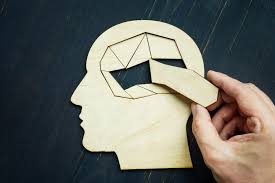
In this unit students examine the contribution that classical and contemporary research has made to the understanding of the functioning of the nervous system, and to the understanding of biological, psychological and social factors that influence learning and memory. Students investigate how the nervous system enables a person to interact with the world around them. They explore how stress may affect a person’s psychological functioning and consider the psychobiological causes of stress. Students investigate how mechanisms of memory and learning lead to the acquisition of knowledge and the development of new and changed behaviours.

This Moodle course has the resources you will need to prepare for the 2024 Psychology exam.
- Teacher: Rebecca Wilson

In this unit students examine the contribution that classical and contemporary research has made to the understanding of the functioning of the nervous system, and to the understanding of biological, psychological and social factors that influence learning and memory. Students investigate how the nervous system enables a person to interact with the world around them. They explore how stress may affect a person’s psychological functioning and consider the psychobiological causes of stress. Students investigate how mechanisms of memory and learning lead to the acquisition of knowledge and the development of new and changed behaviours.

In this unit students examine the contribution that classical and contemporary research has made to the understanding of the functioning of the nervous system, and to the understanding of biological, psychological and social factors that influence learning and memory. Students investigate how the nervous system enables a person to interact with the world around them. They explore how stress may affect a person’s psychological functioning and consider the psychobiological causes of stress. Students investigate how mechanisms of memory and learning lead to the acquisition of knowledge and the development of new and changed behaviours.
- Teacher: Megan O'Donnell
- Teacher: Rebecca Wilson

In this unit students examine the contribution that classical and contemporary research has made to the understanding of the functioning of the nervous system, and to the understanding of biological, psychological and social factors that influence learning and memory. Students investigate how the nervous system enables a person to interact with the world around them. They explore how stress may affect a person’s psychological functioning and consider the psychobiological causes of stress. Students investigate how mechanisms of memory and learning lead to the acquisition of knowledge and the development of new and changed behaviours.
- Teacher: Gus Gardner
- Teacher: Megan O'Donnell
- Teacher: Rebecca Wilson

VCE Psychology enables students to explore how people think, feel and behave through the use of a biopsychosocial approach. As a scientific model, this approach considers biological, psychological and social factors and their complex interactions in the understanding of psychological phenomena.
The study explores the connection between the brain and behaviour by focusing on several key interrelated aspects of the discipline: the interplay between genetics and environment, individual differences and group dynamics, sensory perception and awareness, memory and learning, and mental health. Students examine classical and contemporary research and the use of imaging technologies, models and theories to understand how knowledge in psychology has evolved and continues to evolve in response to new evidence and discoveries. A
n understanding of the complexities and diversity of psychology leads students to appreciate the interconnectedness between different content areas both within psychology, and across psychology and the other sciences.

In this unit students explore the demand for sleep and the influences of sleep on mental wellbeing. They consider the biological mechanisms that regulate sleep and the relationship between rapid eye movement (REM) and non-rapid eye movement (NREM) sleep across the life span. They also study the impact that changes to a person’s sleep-wake cycle and sleep hygiene have on a person’s psychological functioning and consider the contribution that classical and contemporary research has made to the understanding of sleep.
Students consider ways in which mental wellbeing may be defined and conceptualised, including social and emotional wellbeing (SEWB) as a multidimensional and holistic framework to wellbeing. They explore the concept of mental wellbeing as a continuum and apply a biopsychosocial approach, as a scientific model, to understand specific phobia. They explore how mental wellbeing can be supported by considering the importance of biopsychosocial protective factors and cultural determinants as integral to the wellbeing of Aboriginal and Torres Strait Islander peoples.
- Teacher: Zen Idzikowski-Jackson
- Teacher: Megan O'Donnell

In this unit students explore the demand for sleep and the influences of sleep on mental wellbeing. They consider the biological mechanisms that regulate sleep and the relationship between rapid eye movement (REM) and non-rapid eye movement (NREM) sleep across the life span. They also study the impact that changes to a person’s sleep-wake cycle and sleep hygiene have on a person’s psychological functioning and consider the contribution that classical and contemporary research has made to the understanding of sleep.
Students consider ways in which mental wellbeing may be defined and conceptualised, including social and emotional wellbeing (SEWB) as a multidimensional and holistic framework to wellbeing. They explore the concept of mental wellbeing as a continuum and apply a biopsychosocial approach, as a scientific model, to understand specific phobia. They explore how mental wellbeing can be supported by considering the importance of biopsychosocial protective factors and cultural determinants as integral to the wellbeing of Aboriginal and Torres Strait Islander peoples.
- Teacher: Jina Chen
- Teacher: Megan O'Donnell